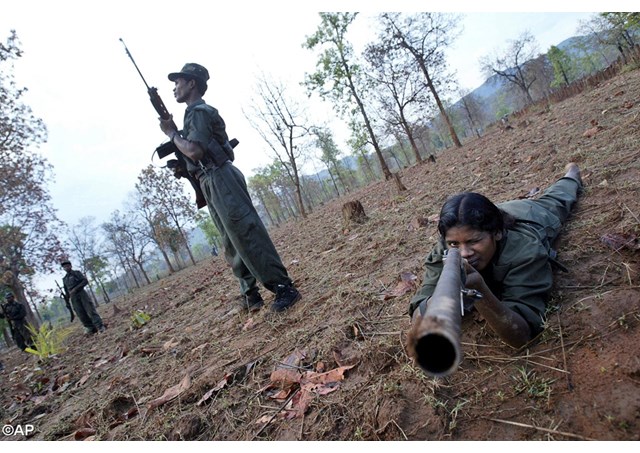
Indian Church urges dialogue with Maoists to end violence

Indian Catholic Church officials have urged for dialogue with Maoist rebels after the insurgents killed 25 paramilitary police and injured 6 in their latest attack in a remote region in Chhattisgarh state. Hundreds of rebels ambushed a contingent of paramilitary Central Reserve Police Force guarding road construction workers in Sukma district on April 24.
The attack has raised fears that the five-decade insurgency is seeing a revival. This year is already one of the bloodiest in recent years, with 72 soldiers killed in the rebel heartland of Chhattisgarh. By comparison, 36 were killed during all of last year. Monday’s attack was the second such attack this year. At least 12 paramilitary personnel were killed on March 12 in a similar attack in the same district which is a Maoist-stronghold. Indian soldiers have been battling the rebels across several central and northern states since 1967, when the militants - also known as Naxalites - began fighting to demand more jobs, land and wealth from natural resources for the country's poor indigenous communities. The government has said the insurgents, inspired by Chinese revolutionary leader Mao Zedong, pose the country's most serious internal security threat.
Chhattisgarh is one of India's poorest states despite vast mineral riches. Rebel attacks in other Indian states are less frequent, but also sometimes result in casualties. Church leaders in the area said the continuing violence between government forces and the rebels has made normal life impossible in Sukma and nearby areas. "The government should immediately start the process to set up a dialogue with the rebels to find peace," said Archbishop Victor Henry Thakur of Raipur, based in the state capital. The language of terrorism cannot be accepted as a method to establish justice for the poor, Archbishop Thakur said. The Church supports tribal people asserting their rights but "stands totally against the method of violence.” “Dialogue should be the only way," he stressed.
Following the Indian Supreme Court's suggestion, the state government, in October 2016, announced plans to hold talks with the rebels. Further plans have been made concerning the surrender and rehabilitation of the Maoists who are mostly young tribal people. However, the government has yet to start the process. More than 6,000 people have died during the rebels' 20-year fight across parts of India although some sources say the death toll is double that.
Father Thomas Kollikolavil, the social work director of Jagdalpur Diocese that covers Sukma, said "a deep-rooted frustration" among local people was the cause of "this unjustifiable violence." "Despite the government doing a lot for the poor, there is a feeling that the government has not taken care of their interests in state programmes and policies," Father Kollikolavil said. The violence could also be seen "as a class struggle between the haves and the have-nots," he said, adding that the poor feel exploited by the rich and their government supporters.
Father Antony Bara, vicar general of Ambikapur Diocese, also in the state, blamed "lopsided government policies" for increasing violence in tribal-dominated areas. He said the state government amended two laws last year, ending tribal peoples' exclusive rights over their land and helping the government to usurp it for industrial projects. "In this process, the poor and illiterate tribal people are harassed and deprived of their basic constitutional rights. They feel frustrated and so many young people support the Maoists and revolt against the government," the priest said. "We want lasting peace in the region so everyone involved in violence should shun it and start the process of dialogue," he said.
Father Abraham Kannampalackal, vicar general and spokesperson of Jagdalpur Diocese, told UCANEWS the killing of the soldiers on duty cannot be justified. "Violence is no solution to any problem," the priest said, also stressing the need for dialogue. (Source: UCAN)
| All the contents on this site are copyrighted ©. |


